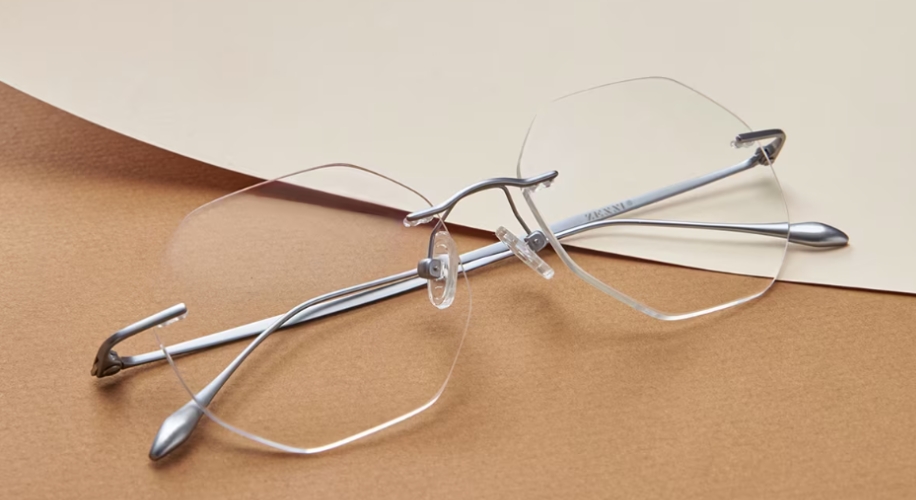Rimless Glasses: Are they Right for You?

When it comes to selecting the perfect pair of eyeglasses, the design and style play an instrumental role in not just vision correction, but also in showcasing your personal style. Rimless glasses, known for their minimalist aesthetic, have been a distinguished choice for many. This style eliminates the visible frame, creating an unobstructed view of the world and a seemingly ‘invisible’ look on your face. But are rimless glasses the right choice for you? Let’s explore their benefits and considerations to help you decide.
Understanding Rimless Glasses
Rimless eyewear is exactly what it sounds like – glasses without the traditional rims around the lenses. They are held together by a bridge and temples that are directly attached to the lenses, often through small screws or a delicate mounting system. Popular for their lightweight and unobtrusive feel, rimless glasses have become a timeless trend in the eyewear world.
- Lightweight Comfort: With less material than full-framed or semi-rimless options, rimless glasses are typically lighter, providing a comfortable fit for long-term wear.
- Unmatched Subtlety: The absence of a full frame allows for a discreet look that doesn’t dominate your face, making them a favorite for those who prefer a less noticeable eyewear option.
- Versatile Style: Due to their minimalistic nature, rimless glasses can complement almost any outfit or occasion without clashing with other accessories.
Shop Frame
Are Rimless Glasses Right for You?
While rimless glasses certainly offer a unique blend of elegance and subtlety, they may not be suitable for everyone. Here are some factors to consider:
Lifestyle and Usage
Do you lead an active lifestyle or are you prone to handling your glasses roughly? Rimless frames tend to be more fragile than their full-framed counterparts. If you’re active or prefer something sturdier, rimless might not be the best option.
Prescription Strength
Those with higher prescription strengths may find that rimless glasses aren’t the most practical choice. Thicker lenses can detract from the sleek, lightweight design that rimless glasses are known for.
Facial Features
Your face shape and features can also influence how rimless glasses will look on you. Since they don’t draw attention to the eye area, they may not be the best to accentuate your facial features if that’s what you’re looking for.
Caring for Your Rimless Glasses
Maintaining rimless glasses requires a gentle touch and attention to detail. When cleaning, hold the lenses by the edge and use a microfiber cloth to avoid any unnecessary pressure that could misalign them. It’s also recommended to keep them in a hard case when not in use to protect them from accidental damage.
Choosing the right glasses is a personal and important decision. If you value a minimalist and sophisticated look, rimless glasses might be the perfect fit for you. They offer a timeless elegance that can effortlessly elevate your everyday look. Remember to consider your lifestyle, prescription, and the shape of your face when making your decision. If you’re ready to explore rimless options or have any further questions, our team is here to assist you in finding the perfect pair that suits not just your vision needs, but also your style. Visit Zenni Optical to browse our extensive collection of rimless eyewear that combines both form and function.
About the Author: Dr. Sophia Moh, OD, ABOC
Dr. Sophia Moh, OD, is an optometrist based in the Bay Area, California. She holds a doctorate from UC Berkeley School of Optometry and has worked in various eye care settings, including primary care optometry, general ophthalmology, community health clinics, and Veterans Affairs. Dr. Moh is dedicated to improving global vision health by making high-quality, affordable eyewear accessible to all. She is also a certified American Board Optician (ABO) and actively contributes to optical education through training and lectures.




 Canada
Canada